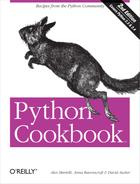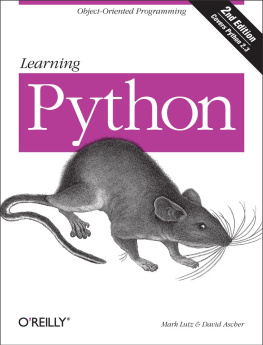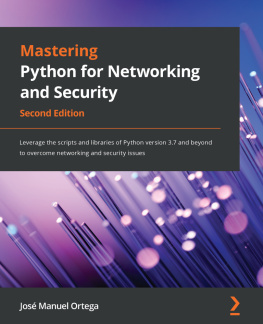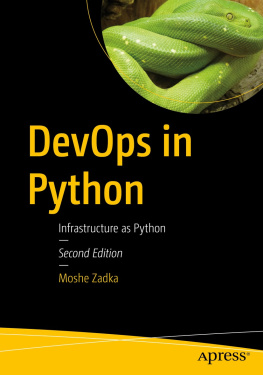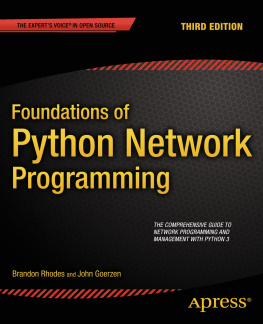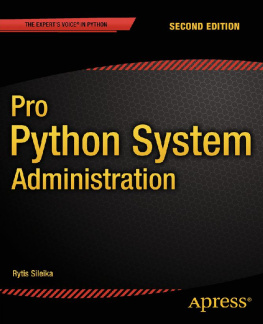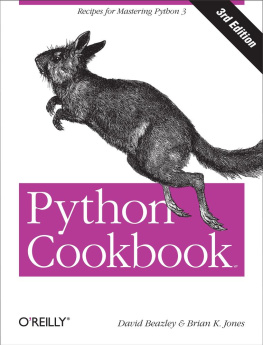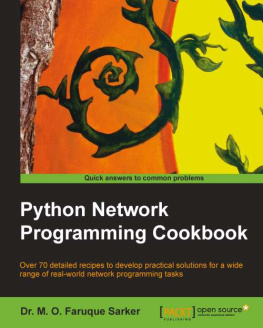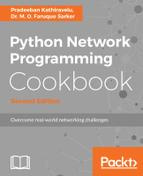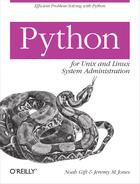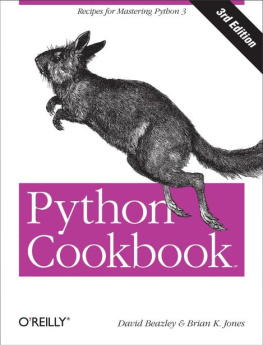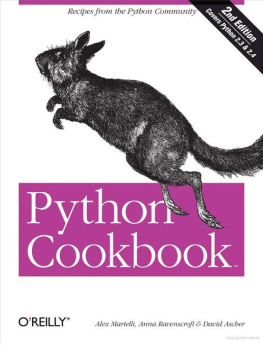This book is not a typical O'Reilly book, written as a cohesive manuscript by one or two authors. Instead, it is a new kind of booka bold attempt at applying some principles of open source development to book authoring. Over 300 members of the Python community contributed materials to this book. In this Preface, we, the editors, want to give you, the reader, some background regarding how this book came about and the processes and people involved, and some thoughts about the implications of this new form.
The Design of the Book
In early 2000, Frank Willison, then Editor-in-Chief of O'Reilly & Associates, contacted me (David Ascher) to find out if I wanted to write a book. Frank had been the editor for Learning Python , which I cowrote with Mark Lutz. Since I had just taken a job at what was then considered a Perl shop (ActiveState), I didn't have the bandwidth necessary to write another book, and plans for the project were gently shelved. Periodically, however, Frank would send me an email or chat with me at a conference regarding some of the book topics we had discussed. One of Frank's ideas was to create a Python Cookbook , based on the concept first used by Tom Christiansen and Nathan Torkington with the Perl Cookbook . Frank wanted to replicate the success of the Perl Cookbook , but he wanted a broader set of people to provide input. He thought that, much as in a real cookbook, a larger set of authors would provide for a greater range of tastes. The quality, in his vision, would be ensured by the oversight of a technical editor, combined with O'Reilly's editorial review process.
Frank and Dick Hardt, ActiveState's CEO, realized that Frank's goal could be combined with ActiveState's goal of creating a community site for open source programmers, called the ActiveState Programmer's Network (ASPN). ActiveState had a popular web site, with the infrastructure required to host a wide variety of content, but it wasn't in the business of creating original content. ActiveState always felt that the open source communities were the best sources of accurate and up-to-date content, even if sometimes that content was hard to find.
The O'Reilly and ActiveState teams quickly realized that the two goals were aligned and that a joint venture would be the best way to achieve the following key objectives:
Creating an online repository of Python recipes by Python programmers for Python programmers
Publishing a book containing the best of those recipes, accompanied by overviews and background material written by key Python figures
Learning what it would take to create a book with a different authoring model
At the same time, two other activities were happening. First, those of us at ActiveState, including Paul Prescod, were actively looking for "stars" to join ActiveState's development team. One of the candidates being recruited was the famous (but unknown to us, at the time) Alex Martelli. Alex was famous because of his numerous and exhaustive postings on the Python mailing list, where he exhibited an unending patience for explaining Python's subtleties and joys to the increasing audience of Python programmers. He was unknown because he lived in Italy and, since he was a relative newcomer to the Python community, none of the old Python hands had ever met himtheir paths had not happened to cross back in the 1980s when Alex lived in the United States, working for IBM Research and enthusiastically using and promoting other high-level languages (at the time, mostly IBM's Rexx).
ActiveState wooed Alex, trying to convince him to move to Vancouver. We came quite close, but his employer put some golden handcuffs on him, and somehow Vancouver's weather couldn't compete with Italy's. Alex stayed in Italy, much to my disappointment. As it happened, Alex was also at that time negotiating with O'Reilly about writing a book. Alex wanted to write a cookbook, but O'Reilly explained that the cookbook was already signed. Later, Alex and O'Reilly signed a contract for Python in Nutshell .
The second ongoing activity was the creation of the Python Software Foundation. For a variety of reasons, best left to discussion over beers at a conference, everyone in the Python community wanted to create a non-profit organization that would be the holder of Python's intellectual property, to ensure that Python would be on a legally strong footing. However, such an organization needed both financial support and buy-in from the Python community to be successful.
Given all these parameters, the various parties agreed to the following plan:
ActiveState would build an online cookbook, a mechanism by which anyone could submit a recipe (i.e., a snippet of Python code addressing a particular problem, accompanied by a discussion of the recipe, much like a description of why one should use cream of tartar when whipping egg whites). To foster a community of authors and encourage peer review, the web site would also let readers of the recipes suggest changes, ask questions, and so on.
As part of my ActiveState job, I would edit and ensure the quality of the recipes. Alex Martelli joined the project as a co-editor when the material was being prepared for publication, and, with Anna Martelli Ravenscroft, took over as primary editor for the second edition.
O'Reilly would publish the best recipes as the Python Cookbook .
In lieu of author royalties for the recipes, a portion of the proceeds from the book sales would be donated to the Python Software Foundation.

